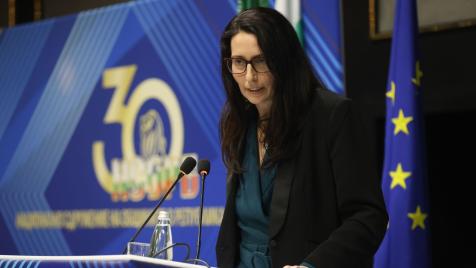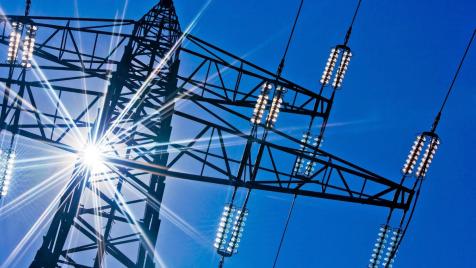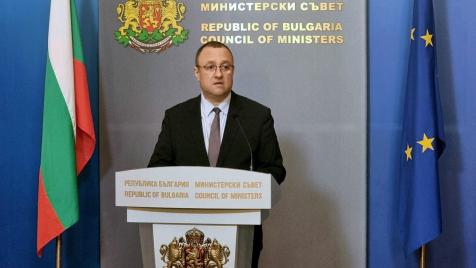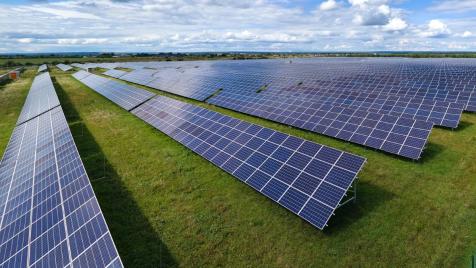Interview | Bulgaria runs the risk of not receiving any more money under the Recovery Plan
Bulgaria is also doing poorly with the RePowerEU plan, and time is running out for the absorption of the funds
Atanas Pekanov, former Acting Deputy Prime minister for Management of European Funds:
© ECONOMIC.BG / Krasimir Svrakov
Bulgaria’s national plan for recovery and sustainability has become one of the key topics in the country’s political life in recent years. With it, Bulgaria has the opportunity to receive over 5 billion euros in grants, which would make it among the best-placed European Union countries to benefit from that aid. However, implementation is slow, and the European Commission has given several signals about this, including one a week ago with its report on Bulgaria, as part of the European Semester.
What should have been working towards receiving the fourth payment installment as per the planned schedule, has turned into waiting for the second installment instead, and key reforms such as the liberalization of the Bulgarian energy market have been delayed as a result. Does this put the entire Recovery Plan for Bulgaria at risk, how does it perform against the rest of the European Union and how difficult is it for a country to buy trains? We discussed these questions with Atanas Pekanov, former Acting Deputy Prime Minister for the Management of European Funds.
In addition to taking part in several Bulgarian caretaker governments, he works as an economist at the Austrian Institute for Economic Research (WIFO) and is also a PhD researcher and lecturer at the Vienna University of Economics. He has worked at the European Central Bank and is part of the strategic council of Bulgarian President Rumen Padev.
Mr. Pekanov, so far Bulgaria has received only one payment under the Recovery Plan, and according to the schedule, we should have already been working on the fourth one. Meanwhile, key reforms such as the liberalization of the energy market are being postponed. In your opinion, after the decision on liberalization, will Bulgaria receive any more money under the Recovery Plan or is it headed for failure?
I'm certainly quite worried that there is a risk that we won't get any more money. I expect that from the second disbursement a huge part of the money will be withheld. The disbursement planned size is 700 million euros. In the best case, in my opinion, due to the blocking of the energy market liberalization, we will receive half of the money. This may only seem like a small reform, but it’s a very important reform for the European Commission. They have been wanting this to happen for years. And yet, it is delayed by one year. That doesn’t mean it will never happen. If the European Commission decides that after a year it is still OK for it to happen, we may have the option to receive the next disbursements from then on.
Yet I'm worried because everything is extremely slow. As you said, we were supposed to be awaiting the fourth fund disbursement, but we are still waiting for the second one. We only have two more years until the end of the Plan, and I don't see any indications that the European Commission will become more flexible and say "Okay, some requirements are now impossible to fulfill but we will accept that you have not fulfilled them". For the moment, I do not see such a thing, not only for Bulgaria but for all other countries. The Commission wants everything to happen as it was planned in 2021, yet we do nothing at all, so I see a huge risk.
This is relevant not only for Bulgaria. Our country is among the countries that stand to receive a lot of money, and even if it performs terribly, it’s not the worst among all the EU countries. There are countries that stand to get less money and they don't move very fast with their duties either.
Yes, but Bulgaria needs to catch up with these countries economically.
Exactly. It's a problem for us. It is not a problem for Austria and Germany whether they will get these grants. For the Netherlands, my personal opinion is that it will not get any money at all under the Recovery Plan. The new government, which was sworn in last week, said it would roll back the pension reform. This is their most difficult reform, which the European Commission is very adamant about. Here the comparison can be clearly seen - whereas the Netherlands will hardly regret that it did not receive the funds, which would be a small part of its economy, for Bulgaria these payments are a much bigger deal.
Can we make a comparison with Romania, with which Bulgaria is compared more often? How are our northern neighbours implementing their Recovery Plan?
Romania has received two payments already. They're a bit ahead of us, but they also got some pretty clear criticism from the European Commission in March - a letter saying that the promises being made by some of the political parties in Romania meant they probably wouldn't be able to get more money soon because they don't want to do what they had agreed to do.
Since 2021, Bulgaria could have invested 33.5 billion euros under the old and new operational programs, the Recovery Plan, RePowerEU. Yet, the country seems to be inactive.
The money from the older programs has been absorbed. No losses there, and the rate of uptake is 99%. With the new programs, however, everything moves slowly. This is not only in Bulgaria - in all countries they are moving slowly. It's a problem, but not a fatal one yet. This is because all countries are focusing on the Recovery Plan. All countries know that its deadline is approaching - until 2026. As per the new cohesion programs, their deadline is until 2027 plus three more years after the end of the program, during which time the funds can be absorbed. Member States are confident there because they know how the Cohesion Policy works, and they have enough time until 2030. That’s why the focus is on the Recovery Plan, yet at some point, they decide that they will not be able to do the reforms connected to it because they are not popular.
Apart from the pending reforms, what are the reasons for Bulgaria’s failure to deliver? And how hard is it for a country to buy trains?
It is difficult because the country follows all possible procedures, but at the same time, it feels that it’s in a hurry. These are two mutually exclusive things. On the one hand, if you are in a hurry, you will try to implement things in the easiest possible way. On the other hand, the bureaucracy associated with the Recovery Plan is greater than that for the cohesion programmes. Generally speaking, under the cohesion programs you buy a train, take the receipt and send it to the European Commission. Now you have to guarantee that the train will contribute to reducing emissions, that it will move at a certain speed. This leads to delays. Of course, the constant change of governments in Bulgaria in the last three years also contributes to the problem.
The administrative capacity we had to absorb these funds was not used and was even put at risk because the unit dealing with European funds under the Council of Ministers was moved to the Ministry of Finance last year. This is also a waste of time. Minister Assen Vassilev (Bulgaria’s Finance Minister in the previous government) placed that portfolio under his ministry. What followed was a constant reshuffling of personnel. This also caused additional delays.
At the same time, we are trying to get twice as much money using the same administrative capacity. We have not allocated additional money for a new administration under the Recovery Plan. The same people who until now have dealt with cohesion policy, which is a different type of policy (it involves implementing activities and reporting them), now have to deal with the Recovery Plan, which is different. The Plan asks for specific results - how you will achieve a reduction in emissions, and how many buildings you will renovate so that each of them has reduced the consumption of electricity by a certain percentage. That's a lot of work.
There’s a lack of admin capacity, therefore.
Yes, indeed, because it should have been increased, but instead it was only transformed, which wasted valuable time.
The former Energy Minister Rumen Radev said that the evaluation of projects according to some procedures had been delayed due to a lack of expert evaluators.
It's true. With thousands of remediation applications, there are huge delays for renewables and that's a problem.
The Minister of Transport, Georgi Gvozdeykov, said on Sunday that he was in talks with the European Commission to change the type of trains under one of the main calls – the one for push-pull trains, whose production could be complete by the middle of 2026. Is it possible that the European Commission will agree to such changes?
These are technical details that I cannot comment on. It's pretty tight at the moment to have everything done by 2026. That is, if it becomes clear that something can't happen by 2026, maybe there's an option to change the type of what needs to be ordered, so it can happen.
Bulgaria must prepare a new chapter to the Recovery Plan - RePowerEU. What do you know about the work on this?
I am very disappointed, because last year in May, at the end of the previous caretaker government, we made some proposals - for example, to expand the electricity transmission grid. This is very important because, with the construction of more renewable energy sources, the power transmission system gets strained and needs to be modernized. And there were other proposals. They all came from the Ministry of Energy. The elected government that followed obviously didn't like these proposals, but they had a year to make their own proposals and send them to the European Commission. Bulgaria remains the only country that has not done so and has not sent its plans for this additional chapter. One year is an extremely long time and a huge risk.
Can Bulgaria receive another disbursement without sending this new chapter?
We can get paid without RePowerEU. That's not the problem. The problem is that RePowerEU was an additional resource - about 500 million euros for Bulgaria. The European Commission basically said, "We will give you money to reduce your dependence on other energy sources after the start of Russian aggression" and so far, we have done nothing with two more years to go. We don't know what we're going to do yet, and we only have two years to do it.
Has the Recovery Plan become highly politicized in recent years?
Yes, I think we over-politicized it because every new government thought that something could be improved, which is probably true, but by chasing this constant improvement we lost a lot of time, even if in the end we are not the only ones to have done so.
It seems like the Recovery Plan did not appear at a convenient time for Bulgaria.
Exactly. But there are countries that took a more mature approach. In Italy, the Recovery Plan was written by Mario Draghi's government, then during the election campaign Giorgia Meloni criticized it a lot, saying "We will change everything". It was part of her campaign message, but after she came to power, she did the work that was set in the plan. I understand bringing up the Plan as part of a political campaign, but then constantly making changes to it that delay implementation - to me, that’s not a good thing.
Translated by Tzvetozar Vincent Iolov

 Antoniya Simova
Antoniya Simova 




